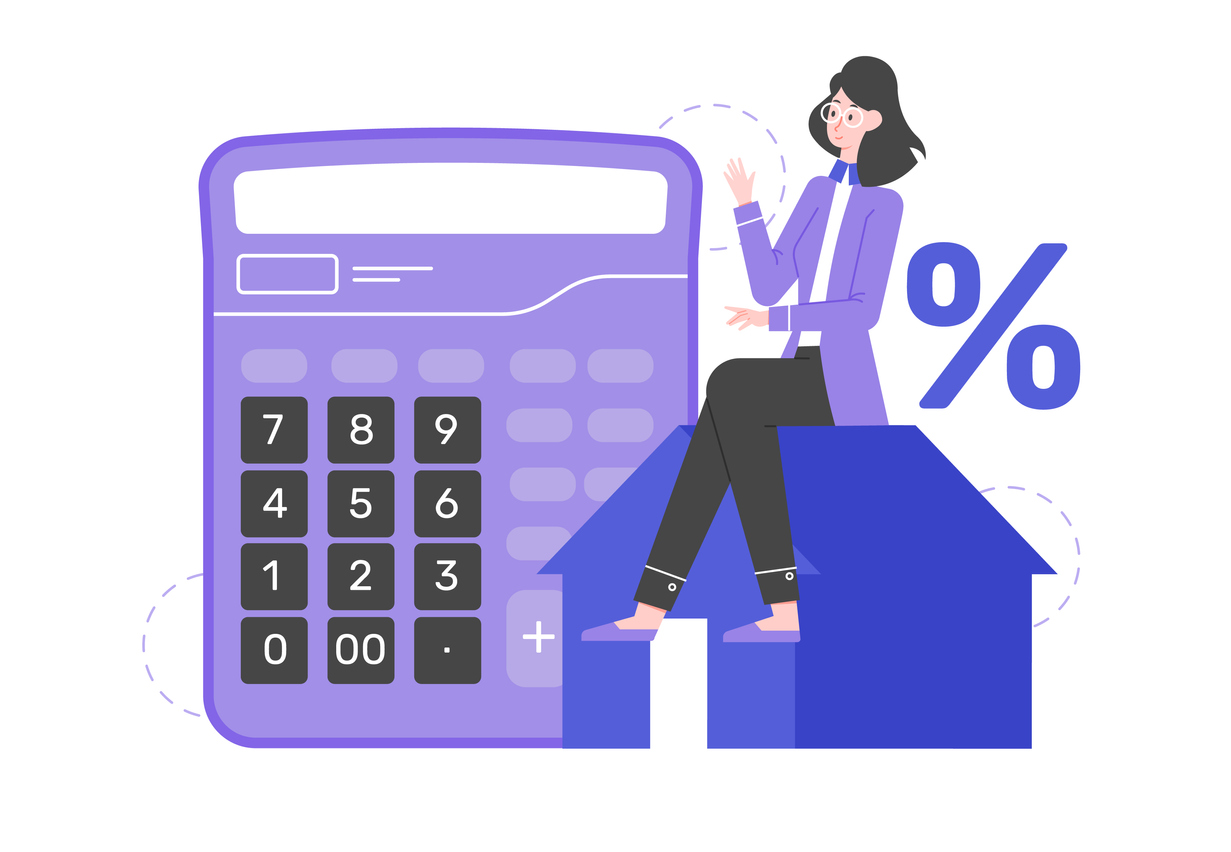How to Get Investment Property Financing with a Self-Employed Bank Statement Loan
Bank Statement Loans are quickly rising in popularity as the preferred mortgage solution for self-employed people, including real estate investors.
Self-employed real estate investors who do not qualify for traditional financing now have an alternative to securing a mortgage by using personal or business bank statements in lieu of tax returns.
These new loan programs are also a great alternative to no doc loans, and hard money loans, which generally have higher rates and shorter terms.
Many real estate investors are unaware that Bank Statement Loans will finance not only a primary residence, but can also be used to finance non-owner-occupied residential investment properties.
Sounds great, right? But if you’re a self-employed real estate investor, how can you be sure it’s the right solution for you?
The main reasons a real estate investor should opt for this type of mortgage financing is to take advantage of lower interest rates and longer-term options.
Investment property Bank Statement Loans are especially attractive when the strategy is to buy and rent, or refinance and rent for the long term.
What Are Bank Statement Loans?
A Bank Statement Loan is an unconventional mortgage alternative to a traditional lending program. In lieu of tax returns, a self-employed real estate investor can easily qualify for a Bank Statement Loan by showing proof of 12 months of the most recent deposits made to either personal or business bank accounts.
There are many benefits to securing a Bank Statement Loan for an investment property including:
- You can refinance your real estate investment property to get cash-out up to 80% of the property’s value
- Loan amounts can be between $250,000 and $5,000,000
- Buy or refinance a real estate investment property up to 80% loan-to-value
- Maximum debt ratio up to 50%
- NO MI
- Lower credit scores to qualify
Rates for Bank Statement Loans
So, you’re ready to reap the benefits of using a Bank Statement Loan to finance your investment property. Now, how about those rates?
First, understand this is how your income will be calculated, based on which type of bank statements you will be using to qualify.
- When using bank statements: 50% - 85% of deposits made are used. The percentage is based on your business type and number of employees.
- When using personal bank statements: 100% of deposits are used.
Then, it’s important to note how rates are calculated.
The biggest factor in determining your rate on a bank statement mortgage is the loan-to-value ratio (LTV). LTV is determined by the total value of your property versus the amount of loan you’re seeking. The lower the ratio, the lower the rate.
Next, there are a few other factors to be aware of that can impact your rate, including:
- Credit score
- Payment history
- Payment options (fully amortized or Interest Only)
- Loan term, (5/1 ARM, 7/1 ARM, 15 and 30 year terms)
- Loan purpose (ie: cash-out refinance)
- Property type (condo, multi-unit, versus single family)
Finally, before applying make sure you know your credit score, your loan-to-value ratio, and review your last 12 months worth of bank statements, so you have a good idea of your average deposits. This will give you an estimate as to what your monthly qualifying income may be.
How to Know if You Qualify for a Self-Employed Bank Statement Mortgage
While there are an estimated 15 million self-employed individuals who can easily verify self-employment with a business license or business formation documents, there are just as many independent contractors who receive business income in the form of a 1099. In other words, any individual in business who provides services to another individual or business can be considered an independent contractor when qualifying for a mortgage through this alternative lending program.
Once you’ve decided to move forward with the application process, you will need a professional license and/or a CPA or tax preparer letter to attest to preparing your tax returns as a Schedule C independent contractor.
The new Bank Statement Mortgage is a quantum leap for the self-employed. If you are one of the millions of people who have been unable to obtain mortgage financing because of your taxable income, you can now buy your next investment property or refinance to tap equity into your property’s existing equity to access capital to buy more real estate investment properties with a self-employed Bank Statement Mortgage.
Ready to Get Started?
If you’re a self-employed homeowner looking to leverage your home equity, lower your rate or access more cash, a bank statement refinance can help. Download our ebook, Ultimate Guide for Self-Employed Bank Statement Mortgages, or contact us to learn more about these no income verification mortgage loans today.
More Content For You:
Key Changes that Improve Real Estate Investor Financing Options in 2018
Self-Employed Mortgage: Buy a Home With a Bank Statement Mortgage
Questions?
Click the live chat window on our site or call (888) 677-2526. Our team is ready to assist you!
About HomeLife Mortgage
For more than 25 years, HomeLife Mortgage has built a strong reputation in California and Florida as a leading mortgage broker, servicing the needs of borrowers who have been unable to obtain conventional financing. HomeLife Mortgage is at the forefront of non-bank lending offering the next generation of mortgages including Jumbo Non-Prime Loans, Real Estate Investor Loans, Bank Statement Loans, FHA Loans and VA Loans.







